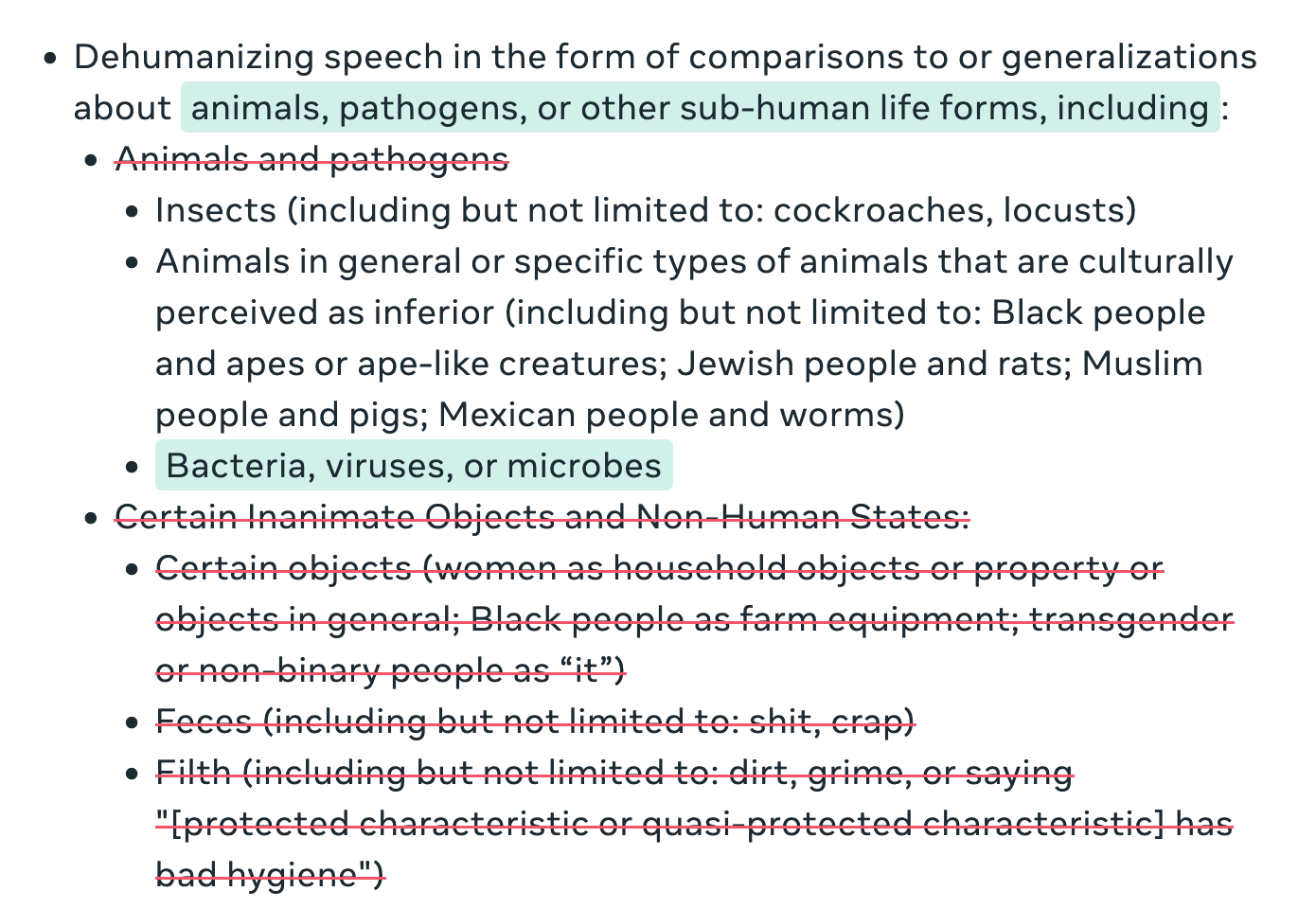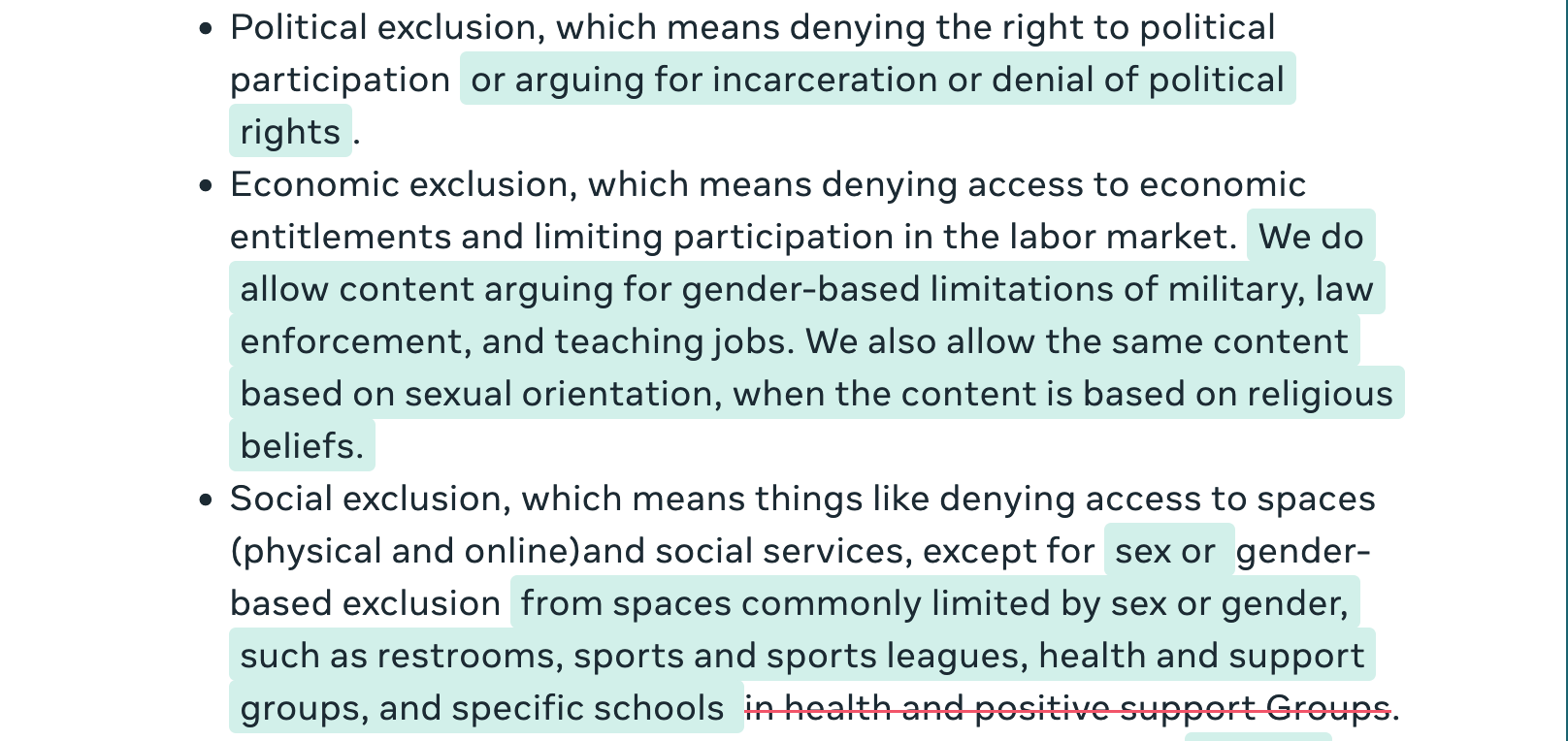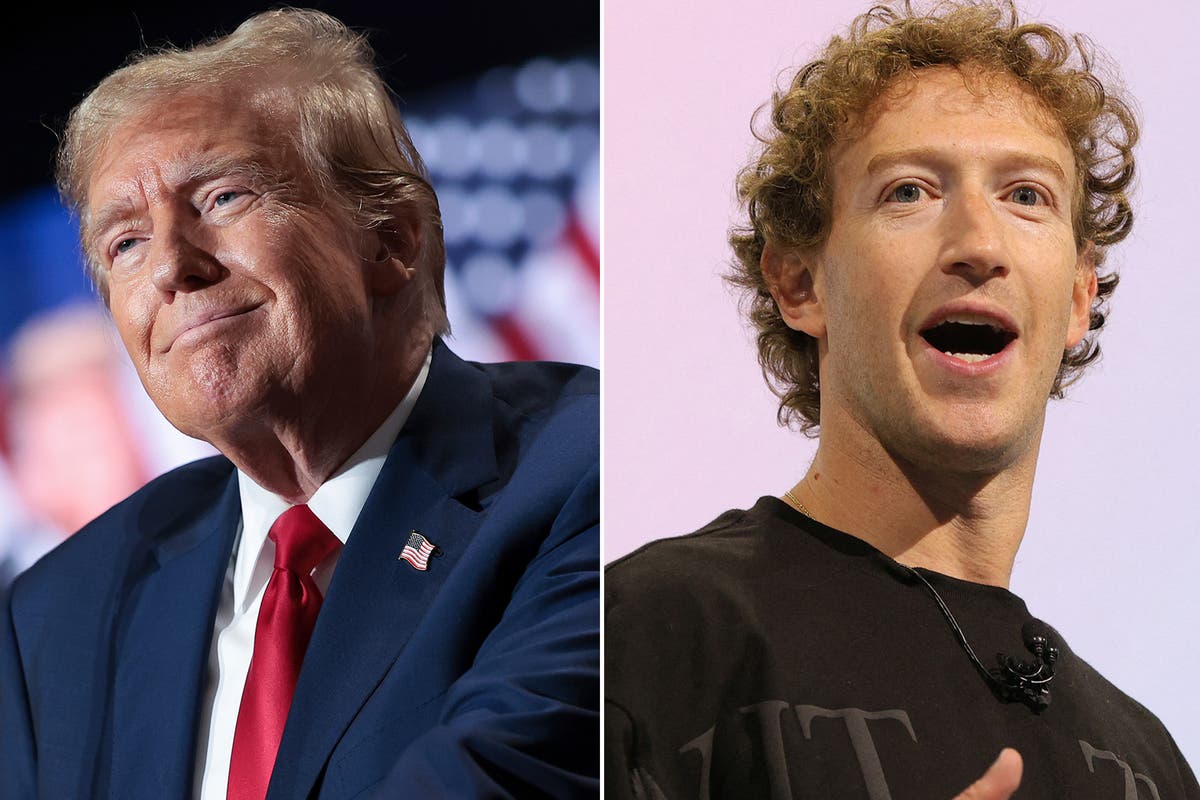Facebook and Instagram have quietly loosened their public rules on hate speech against transgender people, women, and immigrants as executives seek to curry favor with Donald Trump.
In an update to its hate speech policy on Tuesday, spotted first by The Independent, the apps’ parent company Meta deleted numerous clauses banning specific derogatory statements about protected groups, while adding detailed exceptions for anti-trans speech.
Gone is the clause saying you cannot compare women to “household objects or property.” Also removed is a prohibition on claiming that there is “no such thing” as a trans or gay person.
Previously you could not say that a protected group spreads or is responsible for Covid-19, but the new changes removed that line, which seems to allow for anti-Chinese rhetoric.
Added in to the policy are new clauses apparently designed to explicitly allow common anti-trans arguments, such as advocating for trans people to be banned from public bathrooms, school sports, or certain jobs.
“We do allow allegations of mental illness or abnormality when based on gender or sexual orientation,” reads one exception. The same section previously said that users couldn’t call protected groups “freaks” or “abnormal”.
Meta also replaced language banning “generalizations” about a protected group’s “inferiority” on the basis of “intellectual capacity”. Now the new language merely bans “unsupported comparisons” between protected groups’ on the basis of their “inherent intellectual capacity” — seemingly opening the door to scientific racism.
The new policy is among a raft Republican-friendly reforms announced by Mark Zuckerberg on Tuesday, alongside abolishing Meta’s fact-checking program and moving its content moderation team from California to Texas. Meta also announced Monday that Ultimate Fighting Championship president and Trump ally Dana White will join its board of directors.

The document updated on Tuesday — Meta shows a log of the changes made to the policy — is only a public-facing summary of the actual rules enforced by the company’s content moderators, which are far more detailed and usually kept secret from users.
Therefore, just because a reference to certain conduct is deleted from the public document, that doesn’t necessarily mean the conduct is now permitted. Likewise, Meta adding a new exception does not necessarily mean the exception didn’t exist before. The Independent has asked Meta for comment on the edited policy.
Meta’s public rules define the wiggle room that the company gives itself to make whatever decision it pleases behind the scenes — and when it comes to advocating against minority rights, Tuesday’s changes have widened the barometers of what was previously allowed.
“People sometimes use sex- or gender-exclusive language when discussing access to spaces often limited by sex or gender, such as access to bathrooms, specific schools, specific military, law enforcement, or teaching roles, and health or support groups,” the new rules say.
“Our policies are designed to allow room for these types of speech.”

The new public policy removes language that bans comparing protected groups to “feces”, “filth”, or “primitives”, and weakens a prohibition on calling people “criminals” to say “violent criminals” or “serious criminals.”
It also slims down the clauses against insulting protected groups based on their appearance and alleged sexual promiscuity, and removes language banning open admissions of intolerance (such as “I despise x group” or “I don’t respect x group”).

